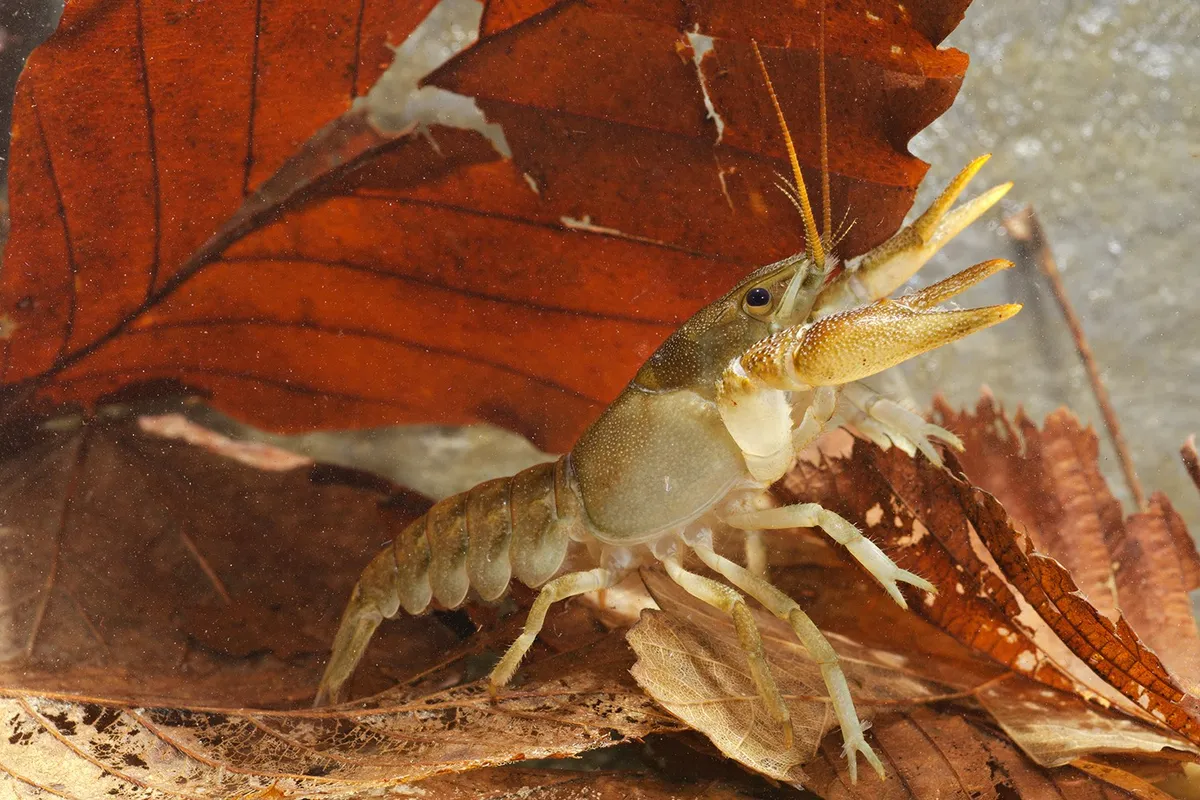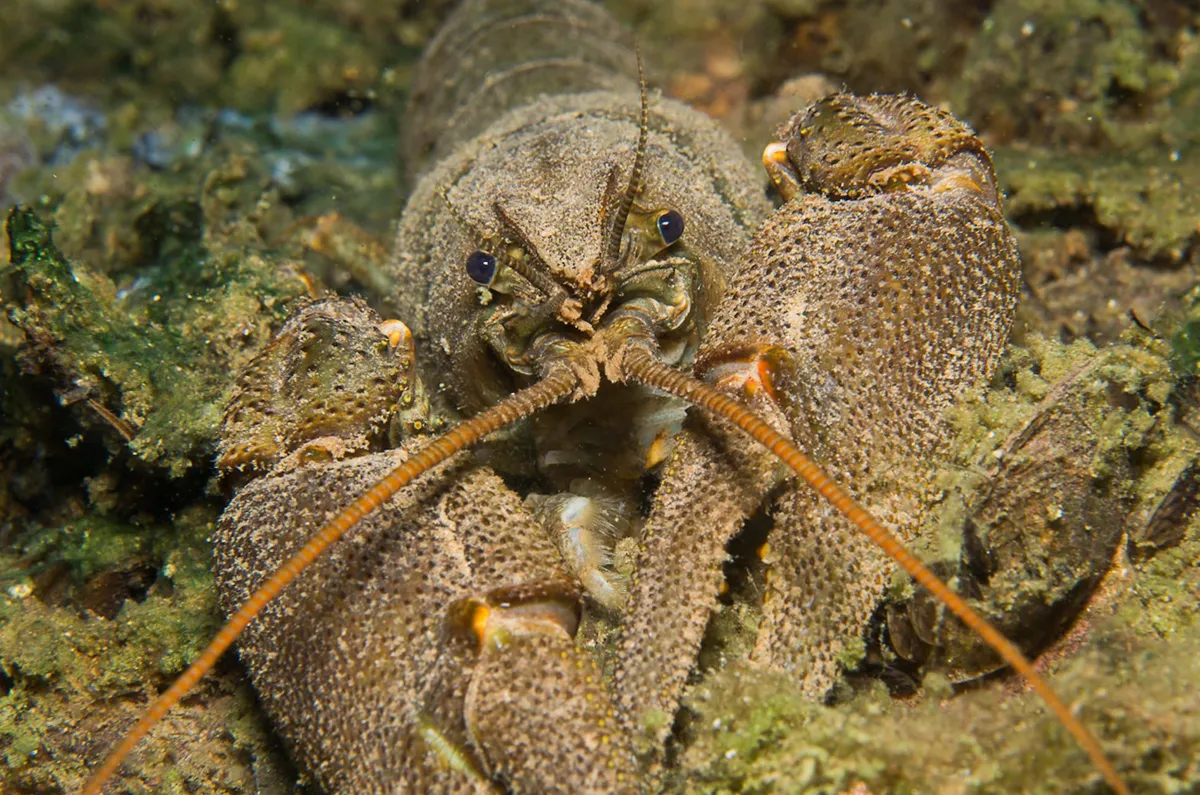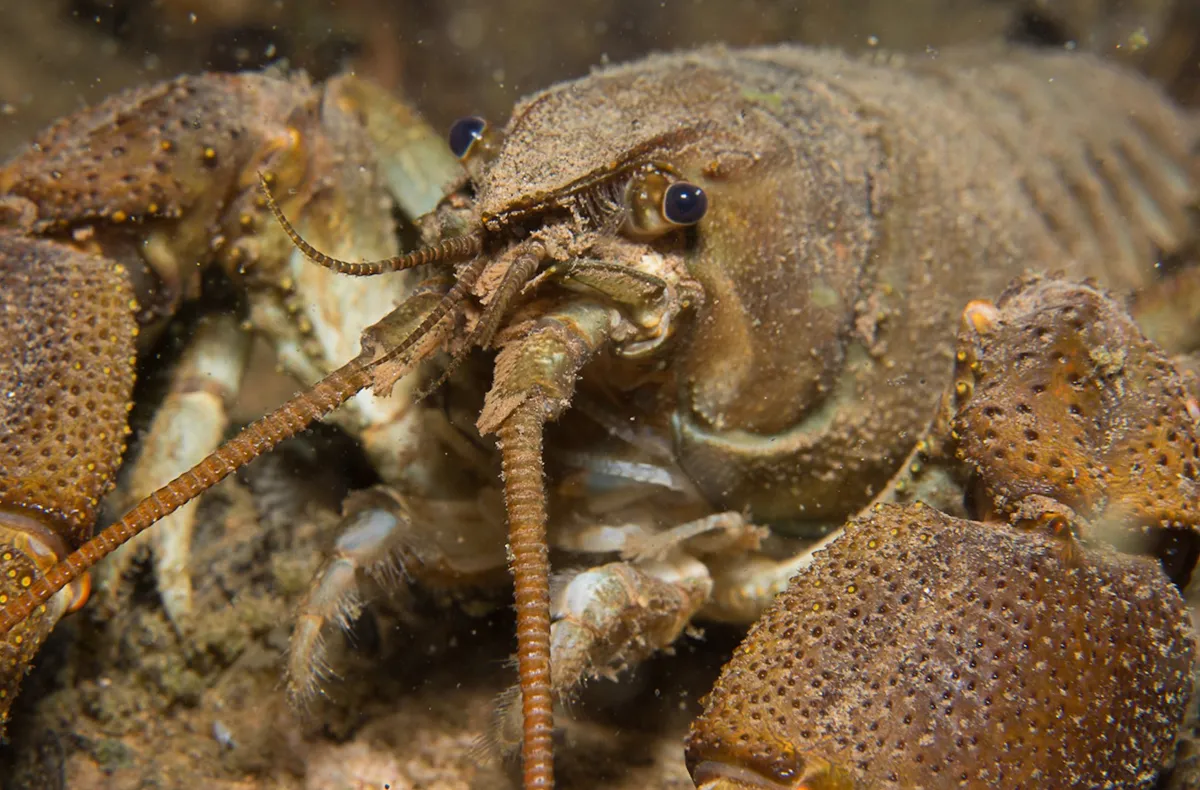Plans are in place to open a conservation breeding centre to help save one of the UK's most endangered native species: the white-clawed crayfish.
Although less well-known than our robins, hedgehogs, badgers and red squirrels, these animals – the UK’s only native freshwater crayfish – play an important role in the ecosystem, particularly chalk streams such as the River Itchen and River Test in Hampshire.
They provide a food source for other animals, including otters and swans, and keep waterways healthy by eating decaying plant and animal matter, which prevents algal blooms.

But white-clawed crayfish under threat. Around 70% have been lost in the UK since the 1970s due to pollution, disease, habitat loss and the introduction of non-native species. If we lost white-clawed crayfish, we could also lose chalk streams and the animals who call them home.
“There are only around 300 chalk streams in the world and many of these are in England,” says Dr Will Justice, Director of Animal Care at Marwell Zoo.
“When we think of chalk streams, we typically think of species such as otters, kingfishers and trout, all of which are reliant on healthy environments with good water quality. And white-clawed crayfish are critical in helping to achieve this. Without them, these precious habitats are at risk, along with all the other wildlife that live there.”
Marwell Wildlife, the charity that runs Marwell Zoo in Hampshire, is planning a new breeding centre to raise and release endangered white-clawed crayfish. The charity plans to convert one of their buildings and buy the specialist equipment needed to breed and care for the animals.

“Marwell is probably best known for its more exotic animals and for our conservation work with big cats, Grevy’s zebra and Scimitar-horned oryx, but we’ve been working for over 30 years to support the recovery of nature and wildlife here in Hampshire and across the South coast too,” says Justice.
At the breeding centre, experts will introduce male and female crayfish to each other to mate, which usually happens in the late summer or early autumn. Once the females are ‘berried’ – carrying eggs – the male’s paternal role is over; they don’t play any part in raising the young. The Marwell team will ensure the water quality and temperature is perfect for the mum-to-be until the eggs hatch in the summer.
“The designs for the breeding centre focus on providing the optimal environment and welfare for white-clawed crayfish at all life stages,” says Dan Garrick, Marwell’s Team Leader for Lower Vertebrates & Invertebrates.
“A lot of thought has gone into filtration and water quality management, and how this can be matched to what the crayfish would naturally experience.”

The centre will have enclosures with burrows for the crayfish and conditions that mimic their natural habitat, so they can dig and forage as they would in the wild, and guests will be able to visit to see the crayfish and watch the team at work.
For the first few weeks of their life, the young will survive on their yolk reserves before they’re ready to live independent lives as mini crayfish. Eventually, Marwell aims to reintroduce the crayfish to sites where they’ve been lost or introduce them to new, self-contained sites where they’d be able to establish healthy wild populations.
Words: Melissa Hobson
You may also like: